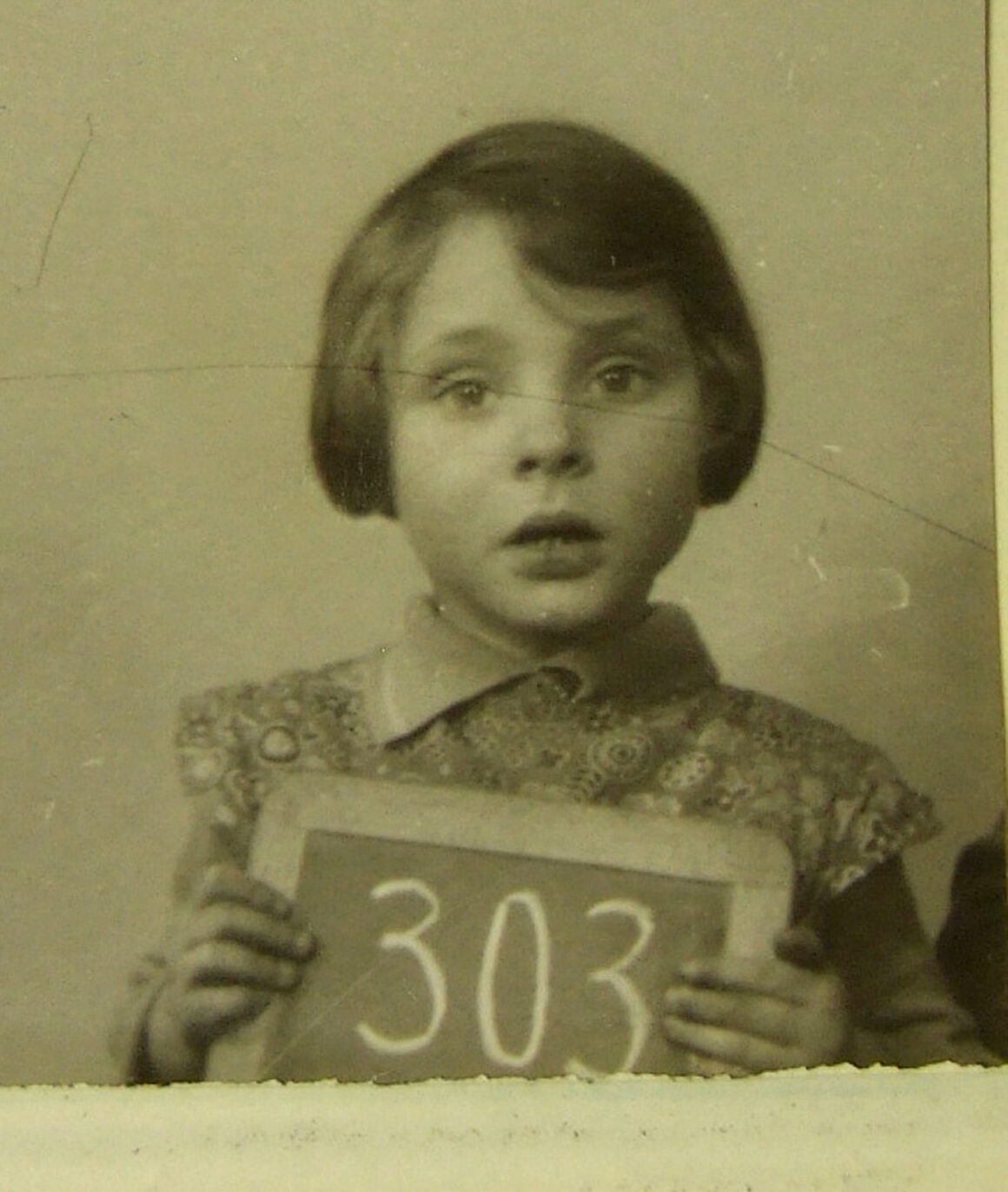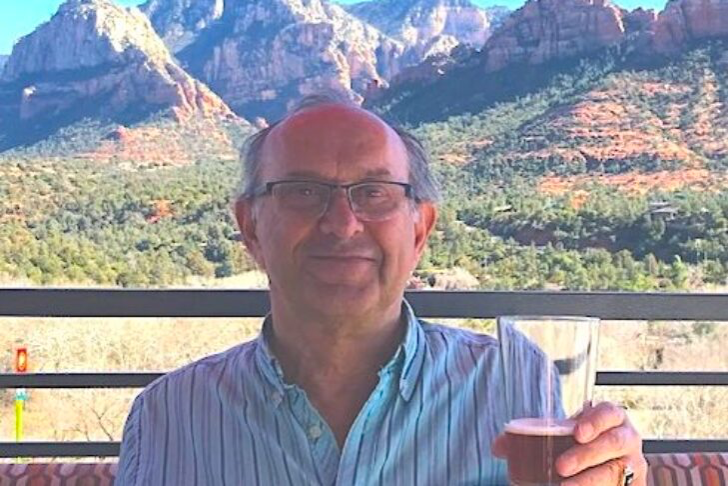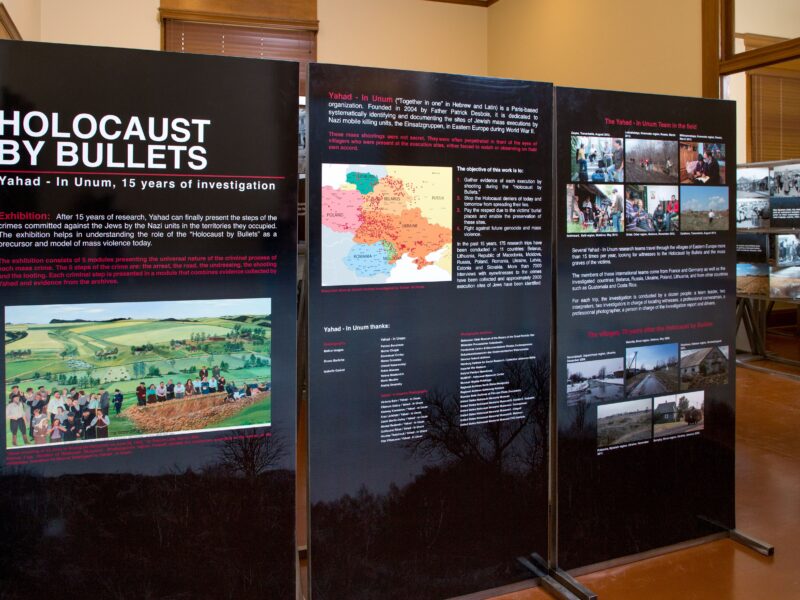Photo: Mirjam today
By Sharon Gelbach
Listening to Mirjam Bait Talmi (nee Szpiro) tell her tale of Holocaust survival, I’m immediately struck by her attempt to date every memory, categorize every conversation, and place each memoir in the context of the larger events taking place around her. It all makes sense when I learn that she’s an academically certified historian, a distinction earned after she finished raising her family, at the age of 48.
Blessed with an extraordinary memory, reaching back to the peaceful prewar days when she was just a toddler, Mirjam’s first recollections of the war were in the wake of Kristallnacht. SS soldiers barged into their small apartment in Duisburg, Germany, and Mirjam and her two older siblings were hidden under the bed. That memory came with a view of the soldiers’ menacing black boots – a sight that would haunt her for years afterward.
After her father was seized and taken to Dachau, her mother sent the children to Holland by train, on their own. Mirjam never saw her mother after that trip, but it was from Amsterdam that she and her siblings were rescued, placed on the last kindertransport ship to the safe shores of England.
Mirjam endured years of orphanhood, uncertainty, and a deep loneliness that still strikes occasionally, while completing her education in England. After high school, she joined a youth aliyah group, through which she learned fluent Hebrew, Jewish history, as well as various technical skills that would prepare her for life on a kibbutz. Three years later, she moved with her group to the newly founded Kibbutz Zikim, on the border with Gaza. (The rampant Palestinian missile fire, eerily reminiscent of the wartime bombings in Manchester, would not torment her until much later.)
Meanwhile, she married the father of her children, a survivor who had spent the war years in Shanghai China, and like many survivors, did her utmost to hide her melancholy past and fit in as a born-and-bred sabra. “When my children were born, I hated the kibbutz’s communal sleeping arrangement, but I had to accept it because I wanted to continue being a member.”
In the ’60s, the German government started paying Holocaust reparations, and Mirjam was encouraged to apply. “Immediately after arriving in Israel, I’d been diagnosed with TB, a condition I’d contracted during the war and that necessitated a full year of convalescence. All in all, I was eligible for major compensation. I filled out the forms, and then went to the bank with the kibbutz secretary. I got the money — two briefcases full of cash —and handed it over to the kibbutz willingly, because that’s what we did in those days.”
But when, in ensuing years, kibbutzniks started to own private property, Mirjam started questioning the system. “Members were receiving inheritances, and that made me think of all the money I’d given up to the kibbutz. A member from another kibbutz who had handed over all his reparations took his case to court but the judge threw it out, saying that in the early days of the state, the kibbutzim really depended on those funds.”
About 15 years ago, Mirjam saw a notice in the kibbutz newspaper an organization that helps survivors receive compensation, free of charge, called Aviv for Holocaust Survivors. Aviv was giving a free course on how to aid survivors in realizing their rights, and invited anyone who was interested in volunteering.
“My first thought was that maybe, through the organization, I could find out if I had any compensation coming to me, despite having already received a bulk sum,” Mirjam explains.
She didn’t, and that was that. Or was it?
When missiles started raining on Israel from Gaza in 2008, the adjacent communities were on the front line. Kibbutz Zikim is just 800 meters from the Gaza border with only 12 seconds to run to safety. All residents were traumatized, but Holocaust survivors suffered all the more.
Through a meeting with a social worker from Amcha Ashkelon, Mirjam realized that she needed help. Protracted therapy helped her to manage the anxiety that she’d built up over the years, and also opened a door for her to help others.
One therapy session led to a serendipitous meeting with the head of Amcha, who encouraged her to use her talents to help others. Mirjam recalled the course she’d taken with Aviv for Holocaust Survivors, and after some inquiries, Mirjam was welcomed to join the team. The results exceeded all expectations.
“I knew exactly who was eligible for what. I helped people fill in forms in English, heard their stories and commiserated. Sometimes I heard such terrible injustices; I mean, the laws are draconian! And you have plenty of survivors who have nothing to eat, who can’t pay for medication, for dental treatment.
“The stories are heartrending. People who have been through the most horrendous things, but because they came to Israel after 1953, they get a measly stipend and nothing more. Some of these people are desperate. There are reforms all the time, but meanwhile, they are dying out.
Since volunteering, Mirjam has done extensive research, unearthing amazing documents from Yad Vashem, archives in Washington, and Jewish archives in The Hague, some of which provided explanations to her own story.
“It’s amazing what you can find if you just go and look for it,” she said, displaying her father’s death certificate, the papers documenting her arrival and that of her siblings in the UK, and a photo of her when she wasn’t yet four years old.
With her academic background and internet savvy, she has been able to assist survivors who might otherwise have no one to advocate for them.
“One woman told me that she was five when she was in Ghetto Katowice. While her mother cleaned up the bomb site, she held her baby brother by the gate. The woman was asked for documentation, but had nowhere to get it from. I looked up the ghetto on the internet and found the exact site where this woman’s mother worked. I was able to corroborate the woman’s story and it was accepted; resulting in the woman receiving compensation. I’ve helped many others in the same way.”
Today, at 85, Mirjam feels far happier than at any other period in her life. She hasn’t had it easy; recently she was widowed from her second husband, with whom she had a very happy marriage. “I have reached the decision to focus on the good. So many people were involved in rescuing me, so many people worked to give me food, shelter; I’m not going to let myself down. I have a great relationship with my family, I still work three days a week; I paint, do ceramics, study literature, study Tanach, go to concerts. I’d say that I’m having quite a good old age.”







